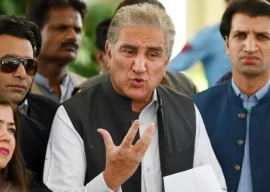
Appearing ethically justifiable, humanitarian intervention opens up various conflicts regarding the question of any state’s right to intervene. Doing something in the wake of human rights violations raises charges of interference in domestic jurisdiction whereas doing nothing can lead to accusations of moral indifference.
Humanitarian intervention in Adam Robert’s words: “Coercive action by one or more states involving the use of armed force in another state without the consent of its authorities, and with the purpose of preventing widespread suffering or death among the inhabitants”.
Of the many interventions today, military intervention remains the most controversial one because it challenges the very foundation on which the current international society is formed upon: the principles of sovereignty, non-intervention and non-use of force. Yet, should oppressive regimes that violate the basic human rights of their people be afforded protection from these norms and what, if any, responsibility do the international community have with regards to protecting and promoting human rights abroad?
It was widely accepted during the Cold War period that the use of force to save victims of human rights abuses was a violation of the charter but there has been a significant shift in attitudes post 1990. There has been a growing consciousness of common humanity which has compelled governments to assume responsibilities to protect citizens of oppressed states. The international legal obligations as set out in the UN Charter set a limit as to how governments could treat their citizens but at the same time the charter also prohibits the use of force for purposes other than self-defence and without UNSC authorisation. The paradox between state sovereignty and non-intervention (Article 2) on the one hand and human rights (Articles 55-56) on the other, comes to surface at such instances. In addition, humanitarian intervention unearths numerous objections of big power politics, unjust interventions and selectivity.
Hence, humanitarian intervention is encompassed by political, ethical and legal dilemmas which leave critics cautious about investing too much faith in state leaders as guardians of human rights.
Published in The Express Tribune, September 21st, 2013.


1731925783-0/Betty-White-(1)1731925783-0-165x106.webp)

1731926127-0/zayn-(1)1731926127-0-165x106.webp)





1731910868-0/Copy-of-Untitled-(45)1731910868-0-270x192.webp)






COMMENTS
Comments are moderated and generally will be posted if they are on-topic and not abusive.
For more information, please see our Comments FAQ